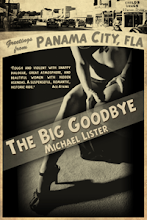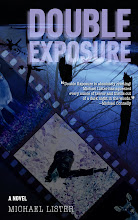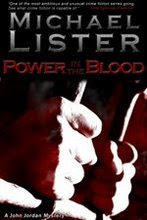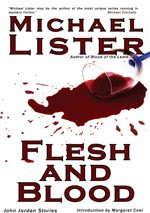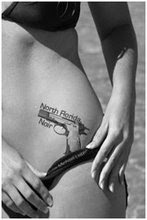
What is an education? How does one go about getting one? Where can both knowledge and wisdom be obtained? These are not only questions I’ve spent my life trying to answer, but those explored by the intelligent and insightful, smart and sexy new film, “An Education.”
In England in 1961, following a youth orchestra rehearsal, bright, beautiful schoolgirl Jenny is given a lift home by a charming older man, David. The two strike up a relationship which includes David’s business partner Danny, and Danny’s vapid mistress, Helen. David charms and coaxes Jenny’s protective parents into allowing him to take her to concerts, jazz clubs, and even to Paris.
David goes out of his way to show Jenny and her family that his interest in her is not improper and that he wants solely to expose her to cultural activities which she enjoys. Jenny quickly gets accustomed to the life David and his companions have shown her, and Jenny and David's relationship takes a romantic turn. After seeing Jenny dance with Danny, David hastily proposes marriage. Her father agrees to the engagement, and Jenny has to decide what kind of education she’s going to pursue—David’s lifestyle or higher education at Oxford.
Jenny’s entire life is spent in pursuit of an education, but when she meets David, she realizes for the first time just how limited her, her parents, and her school’s view of an education really is. What Jenny is experiencing and what she must confront reminds me of what John Adams said—“There are two educations. One should teach us how to make a living and the other how to live.”
Life itself is an education—if we’ll let it be. It’s all in the approach—open, humble, hungry or closed, stubborn, incurious.
Nothing troubles me more—not even greed or violence—than the vast segment of the world’s population that is anti-intellectual and proudly, even militantly ignorant. Allan Bloom said that “education is the movement from darkness to light.” Herein lies the great tragedy—light has come into the world, but people love darkness. We shouldn’t be afraid of the unknown, but the self-destructive defensiveness of not wanting to know. Wanting to know—asking, seeking, thinking—is the very beginning of education.
Education is any act or experience that has a formative effect on the mind, character, or physical ability of an individual, the process by which accumulated knowledge, skills, and values are deliberately transmitted and received.
Think about all those elements—any act or experience that has a formative effect on us, and the process by which accumulated knowledge is deliberately transmitted and received.
There are many, many ways to get an education. The vital thing is that we get one, not how we get it. And, of course, the best educations are those received through a variety of means, by a plethora of professors.
Are we being educated? If we’re not, we only have ourselves to blame. We are responsible for our own education. And we have access to everything we ever need to receive the best education in the history of humanity—bookstores, libraries, museums, the internet, and life itself. When I think of all we have within our grasp and all the ways we fail to take advantage of it, I think of what Mark Twain said about reading—“the man who doesn’t read good books has not advantage over the man who can’t read them.”
“An Education” is not merely entertaining, but inspirational. It’s a wise and witty film, well made, well acted, well written. Nick Hornby wrote the screenplay based on the autobiographical essay by the British journalist Lynn Barber published in the literary magazine Granta. Barber's full memoir, “An Education,” was not published in book form until June 2009, when filming had already been completed.
This movie is magic—conveying so precisely, so powerfully the longing for knowledge and experience by an open person ready for them and the difficult choices involved in truly being educated.
Though “An Education” is filled with subtly brilliant performances—particularly by Rosamund Pike, Olivia Williams, and Peter Sarsgaard—Carey Mulligan’s performance is absolutely sublime. Her Jenny is nearly equal parts old soul and silly school girl, worldly wise woman and naïve innocent child. For nearly my entire life, I’ve been mostly attracted to older women, but Mulligan’s Jenny makes a compelling case against this practice.
Whether in her small bedroom alone with a book or on the streets of Paris, Jenny is hungry to learn, to breathe in every word, every sight, every sound, every experience. We have this in common. She thirsts, and the sheer power of it, its quintessential insatiability is overwhelming. I love this about Jenny, and it’s this aspect of her that I most identify with. These words are contained in all our other words, they are among the final words cried out by Jesus from the cross, they are the unspoken yearnings of mythic immortals who feed on the blood of others. They are the expression from the depths of ever dry and dusty soul, barely hanging on in a parched wilderness wasteland—“I thirst.”
Like Jenny, I’ve spent my life trying to “get my learn on.” I started to say my adult life, but my hunger for knowledge and true wisdom extends way back into childhood. It did, however, take a quantum leap when I finished my graduate degree and became a writer—which, after all, is how it’s supposed to be. School in general and college in particular are meant to teach us how to think, how to educate ourselves. Henry Adams said, “They know enough who know how to learn.”
In the midst of writing this, I happened to glance down at a bookshelf not far from my writing chair at two books I bought just for information—“An Incomplete Education” and “The Knowledge Book.” The books are two among thousands and thousands in my study/cave/sanctuary, for I truly believe what Thomas Carlyle said: “What we become depends on what we read after all of the professors have finished with us. The greatest university of all is a collection of books.”
Buddhism teaches “when the student is ready, the teacher will come.” When Jenny was ready, David appeared. When we are ready, we will learn—which is why it’s so important to continually remain in the humble posture of not-knowing, hungry, open seeking. It’s our best chance at a good education.
Stay open. Stay hungry. Stay ready. When we are, education will happen. We should be intentional about all things—but nothing more so than our education and enlightenment. Take. Eat. Original blessing comes from eating from the tree of knowledge and the tree of life. In fact, the tree of knowledge is the tree of life.
In the end, Jenny gets the best education—one that involves both heart and head, school and life, reading and experiencing. It’s the kind of education I’m in daily pursuit of, and the one I most wish for you, the one that, if we all received it, would most change the world.






